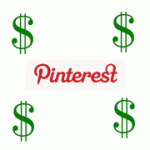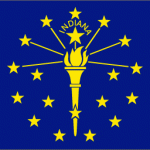
Since the beginning of January, discussions about Pinterest have taken off everywhere. From my Bunco group to Affiliate Summit, everyone is talking about it for some reason. Initially it was because it was a cool, fun site that all my mom friends were using. Then it was because my affiliate marketing friends discovered a way to get traffic and make money from it. Now it’s because everyone thinks that they have been “misled” by Pinterest in some way. I have to voice my opposing view because it doesn’t seem like many people are.
At issue: Pinterest is converting user-generated links to merchants into affiliate links via a service called Skimlinks. As a result, Pinterest will make money if anyone makes a purchase through those links. In addition, affiliate marketers are creating links themselves and fear that their links may get overwritten by Pinterest’s affiliate links.
My disclosure: I’m a Pinterest user. I’m an affiliate marketer. I’m a Skimlinks dabbler.
The Affiliate Argument: I don’t think affiliate marketers have a right to be angry about anything. We’re using someone else’s site to try to make money ourselves. We never had a deal with Pinterest to begin with that we could place our money-making links on their site. If they do end up overwriting them, we can’t complain. They never said that we could place them there. We were taking advantage of their system and their traffic to make money. And we didn’t disclose it to anyone–Pinterest, our merchants, or all of the Pinterest users who click on our links. If it works out for us, great! If it doesn’t, it was a risk we chose to take understanding the way that social sites work.
The Pinterest User Argument: Pinterest users feel duped that Pinterest was making money off of them and they didn’t know it. From my perspective, we don’t have an argument there for a lot of reasons.
- It’s a free service with lots of great functions. Surely everyone realizes that Pinterest had to make money somehow. There are no advertisements on the site. They aren’t selling our email addresses to anyone. How would they be making money?
- The only links that they are making money on are the ones that you create to a merchant site. So you are already copying the content from the merchant when you “pin” it to Pinterest. How can you complain that it was your content to start with and Pinterest shouldn’t make money off of it?
- Pinterest doesn’t in any way encourage you to buy anything through their links. They don’t review the merchandise. Your friends do. If you buy something, it’s not because Pinterest convinced you to, it’s because your friends did.
- If you are going to buy the item anyway as a result of what you learned from the Pinterest site, why not allow Pinterest to make some money off of it? You don’t lose anything when they make money.
- If you are pinning your own actual, unique content from your own website, Pinterest is not making any money off of it.
- Do you know how many other sites make money off of you when you click on their links? Coupon sites don’t post coupons for you just to make you happy. Price comparison sites don’t exist just to help you out. Even a lot of forums let you chat away for free about whatever you want but then overwrite some of your words with Skimlinks. They all have affiliate links and make money when you click on their links and most of them don’t tell you. Are you complaining about those sites?
The Disclosure Issue: For some people, this is where it gets murky. Does Pinterest have to disclose that they are using affiliate links? The issue of disclosure in affiliate marketing is not clear. We do have to let our visitors know that we are setting cookies on their computers that collect certain data. The Pinterest Privacy Policy takes care of that. We also must not deceive our customers into buying something when we have a financial relationship with the seller. Pinterest isn’t representing anything at all. They aren’t writing reviews of products; the other users are. They aren’t encouraging you to visit merchant sites; the other users are. Does the fact that Pinterest might make money off of you if you make a purchase in some way take away from the experience that you are having on the site? I just can’t see why it would. The FTC Guides are about endorsements and testimonials, not links in general.
I’m truly interested in listening to opposing points of view on this. I’m sure that Pinterest will come out with some kind of disclosure policy just to make their users happy. They may also add something about affiliate links in general to their terms to warn affiliates about how they are treating their links. It would be helpful, but I don’t understand why it is required.
Links to other informational articles on the subject:
Pinterest is quietly generating revenue by modifying user submitted pins.
How Pinterest is secretly profiting from your links
What Affiliates and Merchants Should Know About Pinterest Links




